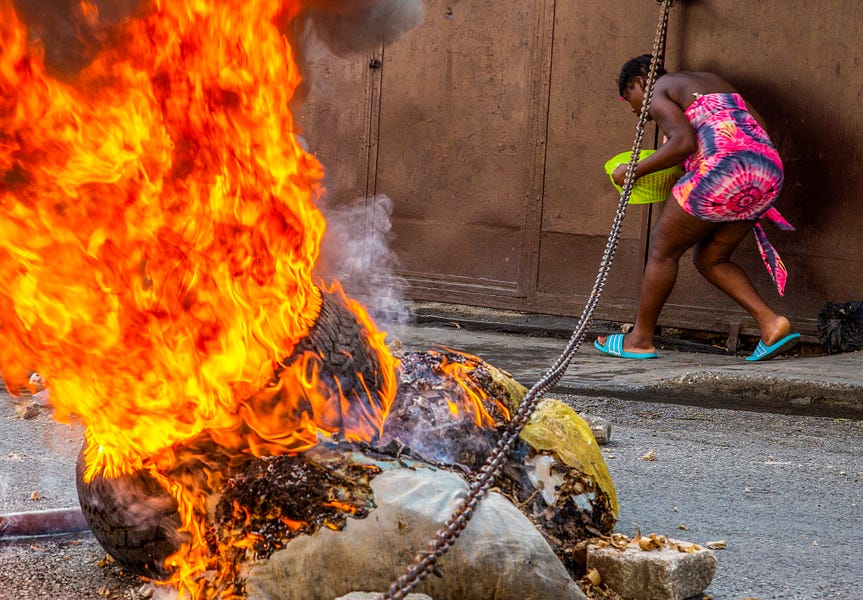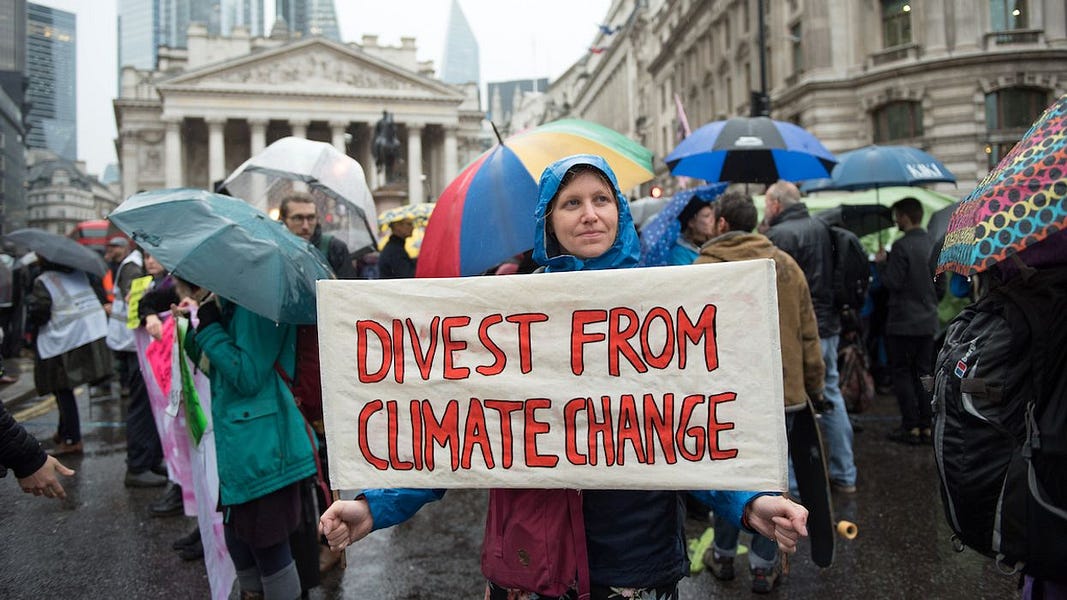https://michaelshellenberger.substack.com/p/the-great-reset-is-real-and-wrecking
Why are global elites demanding poor nations make energy expensive?
Over the last decade, the World Economic Forum (WEF), the United Nations’ International Monetary Fund (IMF), and the World Bank have all urged poor nations to stop subsidizing fossil fuels. “End fossil fuel subsidies and reset the economy for a better world,” read the headline of a June 2020 WEF article about the launch of its “Great Reset” initiative.
The WEF article quoted the Managing Director of the IMF, Kristalina Georgieva. “We now have to step up, use all the strength we have, which in the case of the IMF is $1 trillion,” she said to create “the great reset, not the great reversal.” By “reversal” she meant returning to the use of fossil fuels, after the pandemic. By “reset” she meant moving to renewables. “I’m particularly keen to take advantage of low oil prices to eliminate harmful subsidies,” she said.
Last week, the government of the small Caribbean island of Haiti took the advice of the IMF, WEF, and World Bank and announced the end of fuel subsidies. The result has been riots, looting, and chaos. A powerful gang leader used public outrage at the announcement to block a port and organize the overthrow of the government. Looters stormed warehouses, making off with food aid. Rioters burned down beach houses and businesses. And several European embassies shut down to protect their staff.
The underlying cause of Haiti’s problems cannot be laid at the feet of the WEF or IMF, and many have exaggerated the role of the Great Reset in policymaking. Haiti has been a ward of the US government and international agencies for decades. In 1994, the UN Security Council authorized a military occupation of Haiti after its military overthrew a democratically elected president in 1991. An earthquake killed over 100,000 and devastated infrastructure in 2010. As for WEF, it has been the subject of ridiculous conspiracy theorists.
But there is no question that it was the Haitian government’s announcement of fossil fuel subsidy cuts that triggered the current chaos, nor that it was encouraged by WEF, IMF, and the World Bank. Conspiracy theories aside, the influence of the WEF is quite real, and one of the central demands of the Great Reset was, upon its launch, the phase-out of fuel subsidies in poor nations. And after the government of Haiti, last week announced it would do just that, thousands of Haitians surged into the streets to burn tires for roadblocks. “The population cracked,” a truck driver told the Wall Street Journal.
In an email to me, an IMF spokesperson defended the agency’s advocacy of fossil fuel subsidy cuts. “The Fund supports the objectives of the current government in Haiti as regards fuel reform,” said the spokesperson. “The Fund has also recommended for several years a gradual reduction in fuel subsidies, but only after careful preparation and launch of (i) offsetting social benefits for vulnerable groups affected, including the transport sector, and (ii) clear communications about the rationale and end-goal of subsidy reform.” [Emphasis in original.]
But the IMF should have known that any cut to fossil fuel subsidies would inflame citizens. In 2018, the Haitian government agreed to IMF demands that it cut fuel subsidies as a prerequisite for receiving $96 million from the World Bank, European Union, and Inter-American Development bank, triggering protests that resulted in the resignation of the prime minister. And in 2014, the government of Haiti, on the advice of the World Bank, combined fuel price increases with greater spending on health and education, as IMF recommends, and the result was widespread strikes that forced the government to resume subsidies by early 2015.
And, it’s not just Haiti. Over 40 nations since 2005 have triggered riots after cutting fuel subsidies or otherwise raising energy prices. It happened earlier this year in Kazakhstan, Ecuador in 2019, Nigeria in 2012, Bolivia in 2010, and Indonesia in 2005. “What is interesting,” note researchers, “is that the story plays out in almost the same way, and the consequences of both action—and inaction—are very similar as well.”
All of which begs the question: why, if cutting fuel subsidies results in social chaos and the overthrow of governments, do global elites at the WEF, UN, and World Bank keep demanding poor nations do it?
The Global Elites’ War on Energy
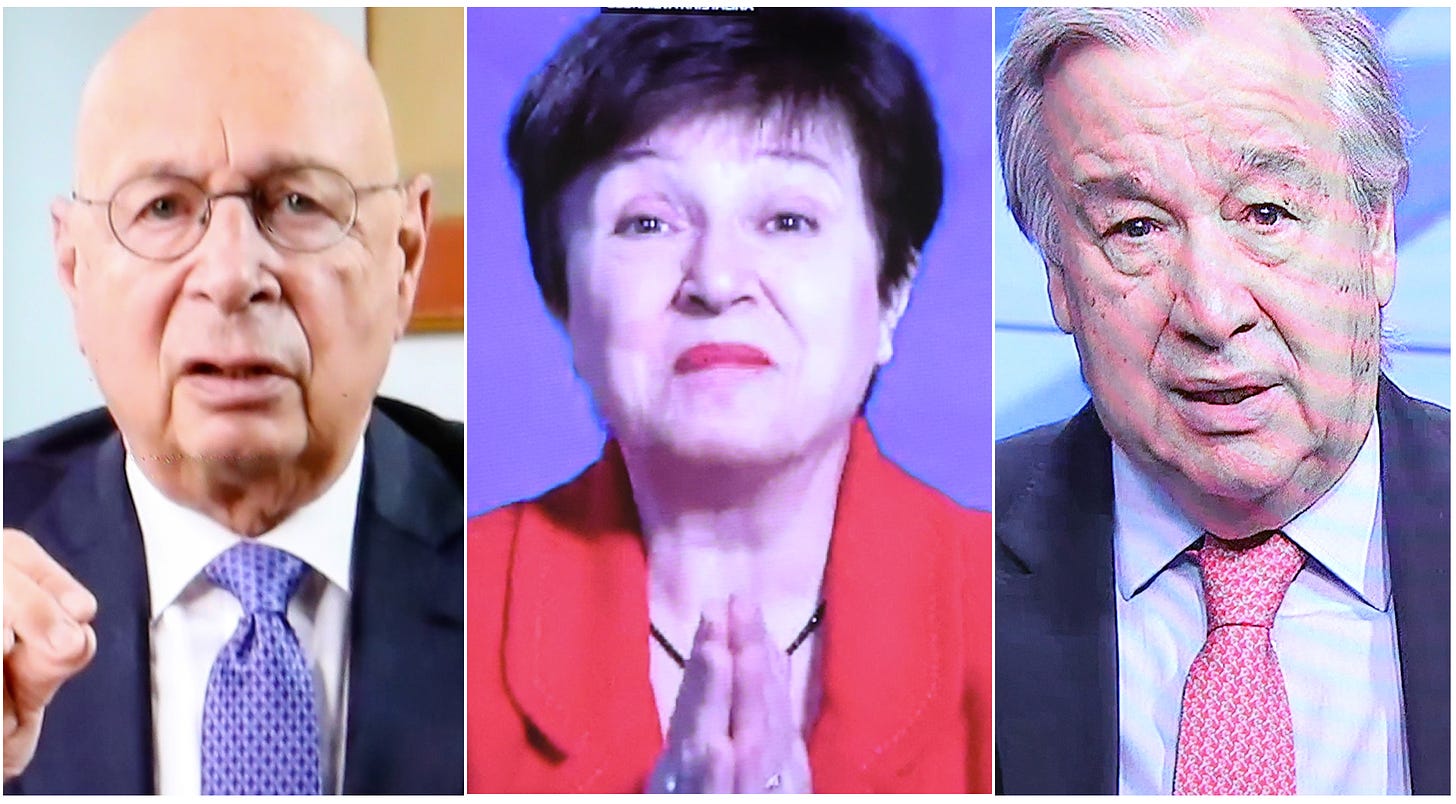
In 2017, an obscure agency within the World Bank called the Energy Subsidy Reform Facility (ESRF) published a report about what went wrong with its 2014 efforts in Haiti to remove fuel subsidies. In it, ESRF revealed itself to be the architect of the Haitian government’s plan to cut fuel subsidies. ESMAP ran economic simulations to predict the impact of fuel price increases on different social groups, held workshops with government officials, and staffed an “inter-ministerial reform committee” to devise ways “to contain possible social and political unrest.”
The report is so damning I was surprised the World Bank allowed it to be published.
#
For years, WEF, the UN, and World Bank have demanded poor nations cut subsidies for gasoline, diesel, & propane. It was the #1 demand of “The Great Reset.” But nearly every time fuel prices rise, there are riots. Why, then, do elites keep demanding it?https://t.co/VBtqGcxcS6
— Michael Shellenberger (@shellenberger) September 23, 2022
Last week, Haiti took the advice of the IMF, WEF, and World Bank and announced the end of fuel subsidies. The result has been riots, looting, and chaos. A powerful gang leader used public outrage at the announcement to block a port and organize the overthrow of the government.
— Michael Shellenberger (@shellenberger) September 23, 2022
Part of the issue is that global elites are arrogant & disconnected from reality. The people who work at the U.N., IMF, and World Bank, and attend WEF conferences in Davos, don’t talk to people in poor and developing nations who are most affected by energy price increases.
— Michael Shellenberger (@shellenberger) September 23, 2022
People in powerful institutions are especially blind to their biases because they view people who disagree with them as their intellectual inferiors. As a result, institutions like WEF, the UN, and World Bank stamp out dissent, so there is nobody around to challenge bad ideas.
— Michael Shellenberger (@shellenberger) September 23, 2022
I am struck by the pervasive elite assumption that public relations can overcome the public backlash to fuel subsidy cuts, as though words trump material reality, and the assumption that the subsidy cuts were vital, no matter how high the social and political costs.
— Michael Shellenberger (@shellenberger) September 23, 2022
Cheap energy is a precondition for development. Subsidizing energy rather than, say, subsidizing health care, or simply giving people cash, may be a way of subsidizing productivity, and have positive knock-on economic benefits that are difficult to measure, inefficiencies aside.
— Michael Shellenberger (@shellenberger) September 23, 2022
The very same people who promote cuts to fossil fuel subsidies promote subsidies for renewables. Notably, the World Bank promotes renewables as something for consumers, like solar-powered light bulbs, rather than as something for producers, like diesel-powered generators.
— Michael Shellenberger (@shellenberger) September 23, 2022
In other words, they promote energy that is too expensive to be used for industry, and which keeps poor nations like Haiti dependent on outside charity, and they oppose energy that is cheap and reliable and can be used for powering factories and transporting workers.
— Michael Shellenberger (@shellenberger) September 23, 2022
For years, WEF, the UN, and World Bank have demanded poor nations cut subsidies for gasoline, diesel, & propane. It was the #1 demand of “The Great Reset.” But nearly every time fuel prices rise, there are riots. Why, then, do elites keep demanding it?
What went wrong? According to ESRF, the Haitian government’s public relations. “Research points out there was a widespread lack of information,” ESRF staff wrote.
The problem was not, the report insisted, that there was anything wrong with the policy of increasing energy prices in a nation where the per capita GDP is $1,814 per year.
Next time, ESRF said, they needed to better explain to Haitians why they needed to pay more for energy.
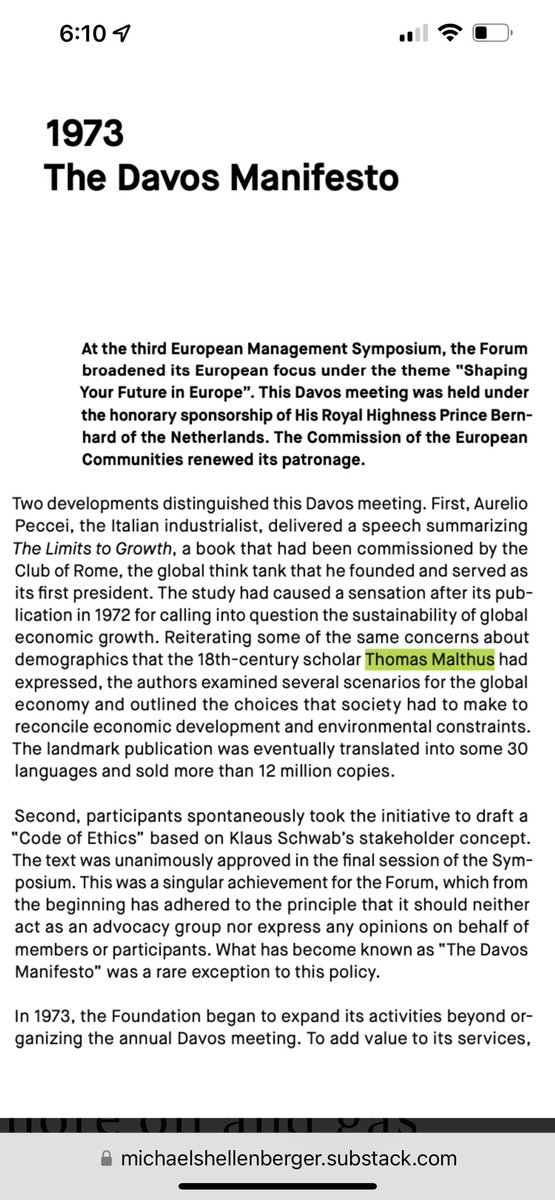
It’s an irrational, apocalyptic religion that emerges from nihilism, the view that life has no purpose, and that we should dismantle civilization. Point any of this out and they say, “Oh gosh no — we’re just trying to help people by reducing pollution!”
But they’re obviously not trying to reduce pollution because, by shutting down natural gas and nuclear plants, they are making pollution worse. And they aren’t interested in reducing fertilizer pollution through technology, only through reducing farming, livestock, & food.
The flip side of nihilism is narcissism. They compensate for the anxiety that stems from their view of life as meaningless by constantly demanding attention. They insist the world will end unless everyone does what they say, namely by becoming poorer.
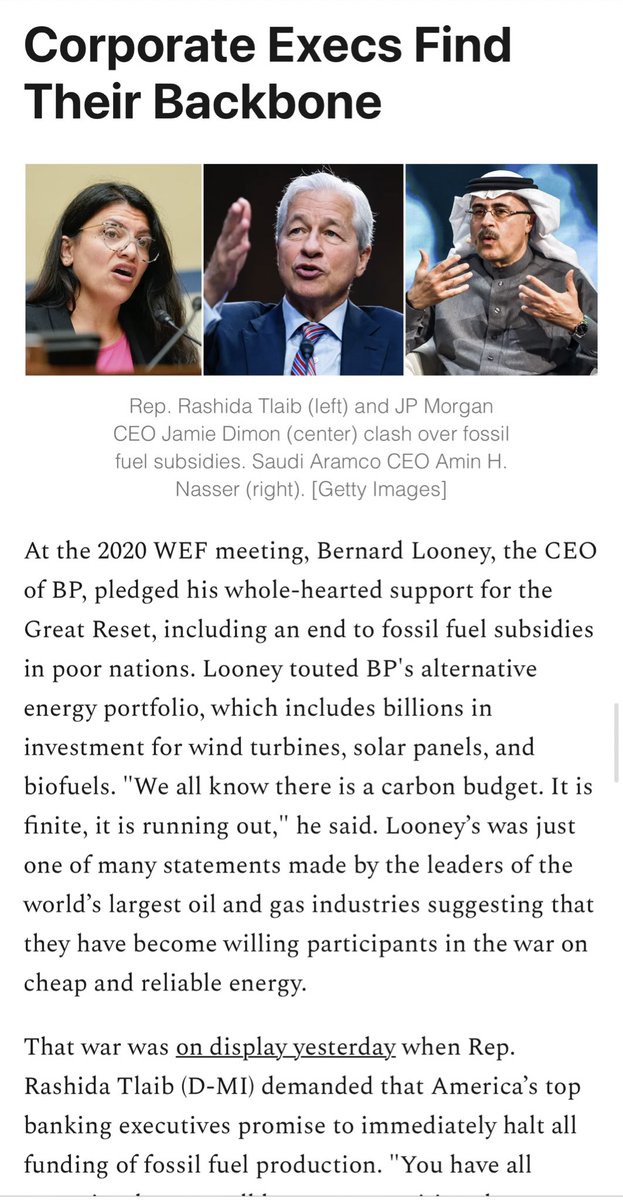
Nasser is, obviously biased, but he is also right. As I noted last year, six months before Russia invaded Ukraine, it was under-investment in oil and gas production, due to the ESG movement and climate activism, that had resulted in their scarcity.
Before long, we will go from the dark and delusional mantra of WEF’s “Great Reset,” “End fossil fuel subsidies and reset the economy,” to a more pro-human and hard-headed one: “Make energy abundant and cheap and reset the elites.”
/End


